Khazarian Mysteries: What do Russian, Polish, Kossack, Jewish, English and Asian Names Have in Common?
Dear readers, this is the last post of the 3 I promised today. I’m practically on vacation mode and I’ll see you all again next week. Please read, like and share all three of these new posts! Don’t overlook any! This article is of a lighter tone than the other two. See Post 1 and Post 2.
Mysteries of Linguistics: What do Russian, Polish, Serb, Kossack, Jewish, English, Italian and Asian names have in common?
Below is a quote from a comment by a reader. As you know, I love getting comments from you. FuturisTrendcast is dedicated to spreading and uncovering the truth, dispelling lies, illusions, confusions, and disinfo. I do this to educate people. Since many from all over the world read my articles, as well as comments, I usually post reader comments that are in line with this mission. To make sure your comment is posted, please always write what you know to be true and helpful to others. Writing from the heart helps.
Russian, Serbian and Bulgarian surnames usually end with -ev/-ov (e.g: Vorobjov, though there are some Middle-Asian surnames ending with -ev/-ov as well, they are distinguishable if the root of a name is typical Asian)
Surnames ending with -in, -vich, -man, skij/-sky have Jewish connotation (Abramovich, Berezovskij, Waltsman, Zvezdin)
Surnames ending with -ko are typical of Ukraine and Belarus.
During Stalin persecution of Jews in 1930-s, many ethnic Jews married Russians and adopted Russian names to avoid persecution, some are doing it now for political reasons (Poroshenko, who is Valtsman, Turchinov, who is Cogan)
In any case, it is difficult to say if someone is Russian by surname only.
If you speak Russian, have a feel of belonging to Russia, can find a common mood with Russians, people will see you as “ours”, even if your surname is Smith. 🙂
-
Hi, Nemo. You’re correct about the fact that Russians will accept anyone who identifies with the Russian culture and respects it as their own. Hence, the names are secondary to Russians. There are lots of Ukrainians, Armenians, Balts, Germans, Georgians, and even Africans, occupying high positions in Russia.
You’re also correct about Poroshenko and Turchinov’s real names and the reason they changed them to sound Ukrainian.Stalin’s repressions and changing names
Also true: people did change their names through marriage during Stalin’s repressions. However, they didn’t do so because they were Jewish, but rather to avoid association with the family name that had been repressed, regardless of the name origin. For example, my best friend’s grandmother’s family name was Ramzin – a perfectly Russian name (with Turkic roots to be sure). Ramzin was one of the famous oppositioners to Stalin, who was repressed in the 1930s. She married a Jew named Bronfman and became Natalia Ivanovna (a perfectly Russian name) Bronfman (typical Jewish). Of course when we grew up, my friend expressed regret that his grandma didn’t retain her pretty famous in Russia family name. In that case, he used to say longingly, I’d be a Ramzin. He loved telling this story to illustrate that there was no antisemitism in the USSR in the 1930s. Antisemitic problems started in Russia in late 1940s-1950s. Why – that’s a different story.
As to the rest, you are incorrect. I want to keep your comment for the sake of all of my readers, so they could see your point of view. However, I have to correct you.
Ancient ending ‘ov’ and its meaning
Ending ‘ov’ (‘ev’ is just a variation) is the ancient Rus ending. Bulgarian names are of the same origin, hence the same kind of ending. You and others can read my article Words, Spells and Linguistical Traps talking about that under the category Mysteries of Linguistics.
The ending ‘ov’ simply means ‘of’ = ‘belonging to.’ This could be a son of, or belonging to a family, clan, or location. English ‘of’ IS the Russian ‘ov.’ This is one of the original ancient Rus roots. For example, Bolotov, Elfimov, Rosanov, Brezhnev, Gorbachev.
Asian – primarily Muslim – sounding names in Central Asia and Caucasus have the ‘ov’ ending because these are names that have been russified later, during the centuries of these territories being a part of the Russian world. There is no mystery there, just need to have a correct historic perspective.
As to the names ending in ‘in,’ ‘vich,’ ‘sky,’ etc., your statement is unfortunately untrue. I would appreciate everyone on this forum not repeating things that have no scientific or logical basis, and smack of antisemitism. Antisemitism is as bad as rusophobia. I am sure you meant nothing of the sort, but whoever released this hoax first, did (I’ve seen this floating around the net). Such erroneous ‘scientific conclusion’ lacks the elementary understanding of history and language.
Ending ‘in’ throughout the world, and its meaning
In reality: ending ‘in’ is one of the most ancient endings, which can be seen throughout the world in colorful variations. It is so ancient that it predates by far any modern language. Its origins are those of our common Earthly mother tongue. Ending ‘in’ means the same as ‘ov’ – that you belong to something or someone, or are a derivative of something. If you are a son of, or are of a specific tribe or location – you are a derivative of that location, or of that father. Another way of saying this is: you are the in-sider of that family or tribe.
It is used in the ancient Russian names such as Putin, Kalinin, Ramzin. And yes, Rasputin, too.
‘In’ becomes “ing,’ ‘en,’ ‘y’ or even ‘on’ in English, as in Pickering, Dowdy, Lynden, or Clinton (in the olden days it sounded more like ‘Clinten’ or ‘Clintin’); in Germanic languages it becomes ‘ung;’ in Italian it becomes ‘i,’ as in Pallini; in France or Spain it may become ‘ion’ as in Collinion; and in Asia it can be seen in many countries, becoming ‘ing,’ ‘ang,’ or ‘en,’ as in Nguen (Vietnamese).
Which ‘vich,’ and do you want to know Lada’s full name?
Ending “vich’ can be used as ‘ovich,’ ‘vich,’ or ‘ich.’ Russian ‘ovich’ is in reality a composite of two suffixes/endings: ‘ov’ and ‘ich.’ ‘Vich’ (or rather ‘ich’ spelled ‘ic’ – ‘c’ in Slavic languages is often historically pronounced as ‘ch’) is of the very ancient Rus/Slavic origin and is used in Yugoslavian (Serbian, Croatian, Slovenian, etc.) names. Means the same exact thing as above: ‘son of,’ = derivative of. ‘Vich’ or ‘ich’ is common to Southern and Eastern Slavs. All of former Yugoslavia (Southern Slavs) uses this ending for their last names. ALL Eastern Slavs (Russians, Belorussians and Ukrainians) use it with EVERY name as well, but differently. In Russia it’s used as a patronymic, not as a traditional last name. Example: Viktor Ivanovich Kuleshov. Or Vladimir Vladimirovich Putin. ‘Vladimirovich’ and other patronymics, always used with all FULL Eastern Slavic names and all names on the territory of the Former Soviet Union, including Central Asia, Ukraine, Moldova, Caucasus, mean: son of Vladimir, or… fill in the blank with any other name.
For women: ‘Vladimirovna’ means ‘daughter of.’ Lada is the daugther of Vladimir = Lada Vladimirovna. That’s the truth, actually – I am. 😉 Full names are used in passports, official documents and as a respectful address.
Incidentally, you are also wrong about Serbs using ‘ov’ in their last names – they use ‘ich.’ All inhabitants of the former Yugoslavia, including Serbia, Chernogoria, Croatia, Bosnia, Slovenia normally have last names ending in ‘ich.’ Some Belorussians have such last names as well.
Bulgarians, on the other hand, have last names ending in ‘ov,’ or ‘ev,’ like Russians. This indicates that Bulgarians have separated from Russians very recently, much more recently than is commonly described in traditional history books. This is to the issue of the distortions of history: this separation is no more than a few centuries old. I suspect, it dates back to as late as 17th century as that’s when massive re-writing of history occurred. In the ancient Russian bylini – chronicles – Russian bogatyrs (knights, heroes, protectors) had last names ending in ‘ovich.’
The well-known painting below by Victor Vasnetsov (1898) ‘Tri Bogatyria’ – ‘The Three Bogatyrs’ depicts the famous historic bogatyrs and heroes of ancient bylini: Ilya Moromets, Dobrynia Nikitich and Alyosha Popovich.
Ending ‘ov’ is a more recent ending. Sometimes ‘ich’ was cut off from ‘ovich,’ forming a shorter name. As a result, Popovich could become Popov.
The fun part: Did you know that English word ‘which,’ is in fact ‘vich’ …well, with English accent. That is because it comes from the same root. ‘Which’ means exactly the same as ‘vich’: ‘belonging to what or whom,’ as in: Which book do you want? Which of these towns are you from? Which lord’s son are you?
Ending ‘sky’
A lot of what I said above applies to the ending ‘sky.’ It means ‘from’ or ‘of.’ This ending was used primarily by Poles, and by Russians. Belorussky means from Belarus. Moskovsky means from Moscow.
‘Sky’ can denote noble origin, as in the famous Russian princes: Prince Volkonsky and Prince Obolensky. Prince Obolensky happens to be the true historic name of one of the main characters of Gold Train (Accidental Spy Russia Adventure).
Kossacks and the ending ‘ko’
As to the ending ‘ko,’ it indeed denotes Ukrainian origin, sometimes Belorussian as well. But in reality, this ending is a Kossack ending. ‘Cossack’ is normally spelled with a ‘c’ in English. But leaving aside the fact that ‘c’ is simply wrong here, I also want to make a point by spelling it with its authentic ‘k.’ You’ll see the point below.
Kossacks everywhere, including in the Russian Urals and Siberia (very far from Ukraine), have names ending in ‘ko.’ Therefore, this ending is not Ukrainian; it is Kossack. Kossack history is very interesting and complicated. I will discuss it in a dedicated article soon. Until then, just this: because so many Kossacks settled in what is now Ukraine, their typical name ending became eventually fashionable with Ukrainians, and Ukrainian names more and more began ending in ‘ko’ as in Volochko, Shevchenko, Pestushko.
But here is the clincher: ‘ko’ was initially ‘kov’ – here is this ‘ov’ again! During a couple of last centuries, ‘v’ was gradually dropped. ‘Kov’ is a variation of ‘ov,’ as in Volochkov, Naboykov, Pestushkov, Shevchenkov, Kochetkov. Usually, names ending in ‘kov,’ as well as ‘ko’ are of Kossack origin. ‘Kov’ is diminutive compared to ‘ov.’ As in ‘of lesser importance.’
Nobles had names ending only in ‘ov,’ never ‘kov’ or ‘ko.’ Examples: Countess Rosanov(a) – the name of the main character of Gold Train (Accidental Spy Russia Adventure). Or Elfimov – family name of the main character of The Earth Shifter.
On another note:
Prussian names end in ‘ov,’ denoting their ancient Russian origin, as in the fashionable towns near Berlin: Beeskov and Bukov, where my German friends reside. P-russia of course was Po-russia (flat Russia) well before it became German. Not to get off topic, but look at the name of the capital of Germany: Berlin. Ber – bear (a Russian symbol no less) with the ending ‘in’ = belonging to the bear, ‘of the bear.’ How interesting. More about that in: Words, Spells and Linguistical Traps.
The Jewish names and Polish pani
What ending Jewish names received depended of what geographic area within Slavic (and before that, ancient Rus) world they had originated from – where they lived for centuries. Oftentimes, Jews, like peasants living on the territory of a certain lord in Ukraine (today’s territory of Ukraine is where most Jews traditionally settled), would oftentimes be referred to by that lord’s last name. ‘Sky’ means ‘belonging to,’ so these Ukrainian peasants, or local Jews, belonged to, or were subordinate to, say, pan Vishnevetsky, or another similar pan (lord). Apparently, there was a “pan Kolomoysky” at one point, resulting in the last name of the infamous Jewish-Ukrainian oligarch Igor Kolomoysky, who is trying to create a fiefdom out of the eastern Ukrainian city of Dnepropetrovsk, and who has a lot of blood on his hands.
‘Sky’ was popular in Ukraine as most lords (or ‘pani’ in Polish) were of Polish origin. In Polish ‘sky’ is spelled as ‘ski.’ Vishnevetski, Pilsudski – Pilsudsky, Sikorski – Sirkosky, like the inventor of the helicopter Igor Sikorsky.
The Khazarian mystery
To wrap this up, I’ll just drop another historical bomb. Many people know that the ethnic origin of the Eastern European Jews is primarily Khazarian, or non-Semitic. Ancient Khazarians were the population of the south Russian, and what is now Ukraine and Novorossia, stepps. Khazarian history is very complicated, but I’ll just say that they were a part of the Rus heritage, albeit its southern manifestation. Because of the many malicious and ignorant re-writings of history, some links are lost. However, the ancient Skiffs (Scythians) and Khazars are parts of the same massive Arian Eurasian Rus culture.
But here is my bomb: Kossacks are the heirs of Khazarians (note how similar these two words are in Russian: Kazak and Khazar). As we established previously, so are most Jews on the planet. As Kossacks are quite the opposite of the Jews in so many ways, it’s interesting how this happened. But that’s the story for another article. Stay tuned!
That’s it for today’s journey into the mysteries of language and history. For more on this, please follow my future posts and special reports in which I will peel off more truths.
P.S. A bit more clarification to answer some reader questions:
Although presently the Russian word for bear is ‘medved’: literally “the one who knows about honey,” the ancient Rus/mother tongue for bear was ‘ber’ – hence the Russian word for bear den: ‘ber-loga.’ ‘Ber’ is one of the most ancient words.
‘Log’ is another mother tongue root and it is visible in many languages. ‘Log’ means anything to do with being horizontal or settled. Like ‘lodging’ in English or ‘logovo’ in Russian: cave, underground dwelling, hiding place. Russian ‘log’ means a trunk of wood – obviously a horizontals item, when layed down or set as part of the wall of a dwelling. English word ‘long’ also comes from this root. Russian ‘lozhitsia’ – ‘to lie down’ is obvious too.
Berlin: from ‘ber’ + ”log’ + ‘in.” Literally means ‘in the bear den.’ Incidentally, the capital of Switzerland is called ‘Bern.’
***
Remember to visit the new Excerpts page for extensive, and very entertaining, excerpts from all my books. You can find more about my books, including buy links, at Books by Lada Ray. Or click on book images on the right side bar.
Lada Ray, M.A.
Comparative linguistics and history of languages; Feng Shui Master; Author
I have lots of interesting articles and cool pics about Russia on Lada Ray Blog: Russia. Under the same tab you can also find a compilation of famous Soviet songs and contemporary Russian songs.
I’ll be posting more links to the best Russian movies here.
Posted on July 1, 2014, in Books, Forbidden History, Forbidden Linguistics and tagged ancient Rus, comparative linguistics, distortions of history, eastern european last names, English names origins, history of languages, jewish last names, khazarian, Lada Ray, linguistical mysteries, linguistics, Polish language, Russian language, Slavic languages. Bookmark the permalink. 19 Comments.
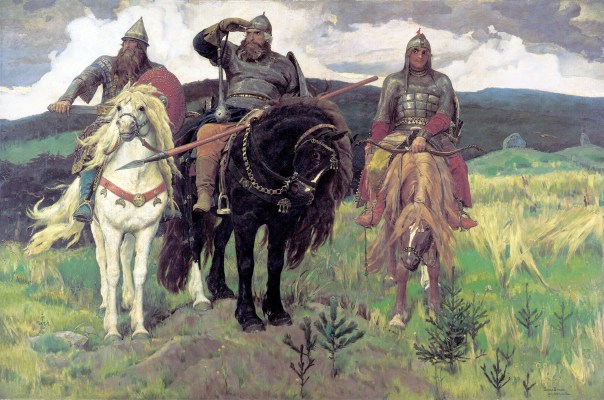

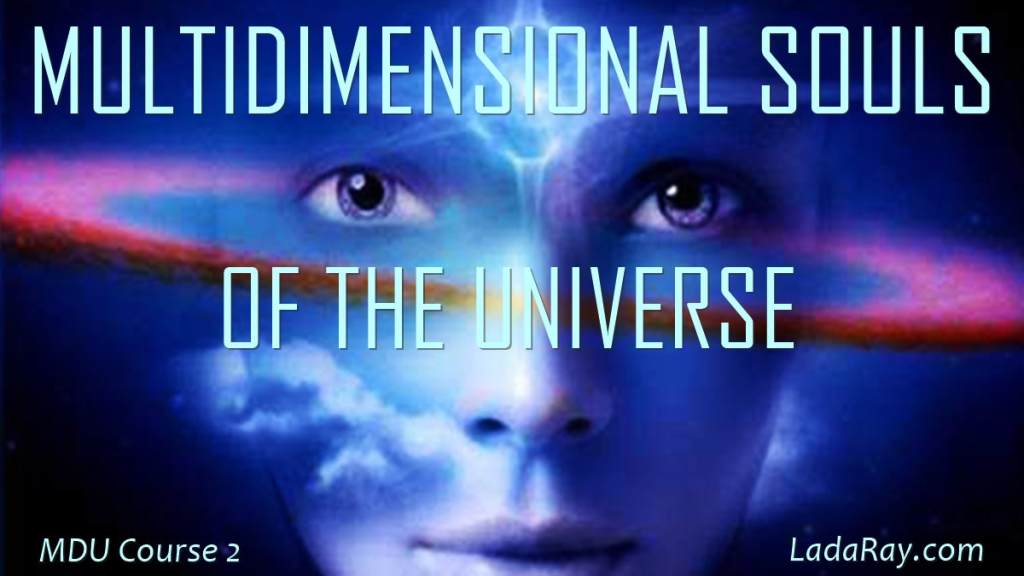


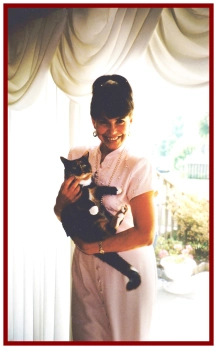
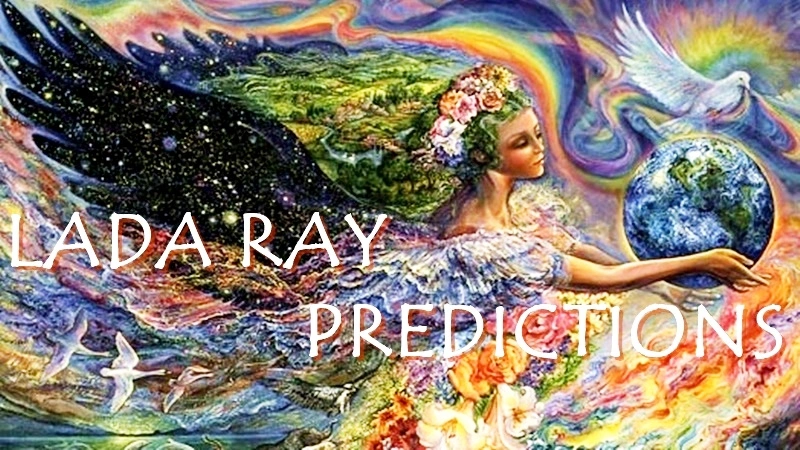

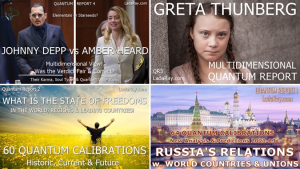




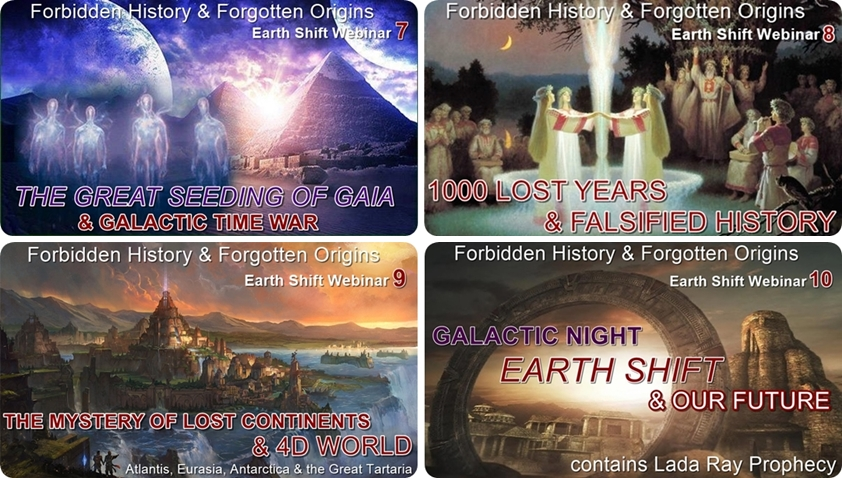



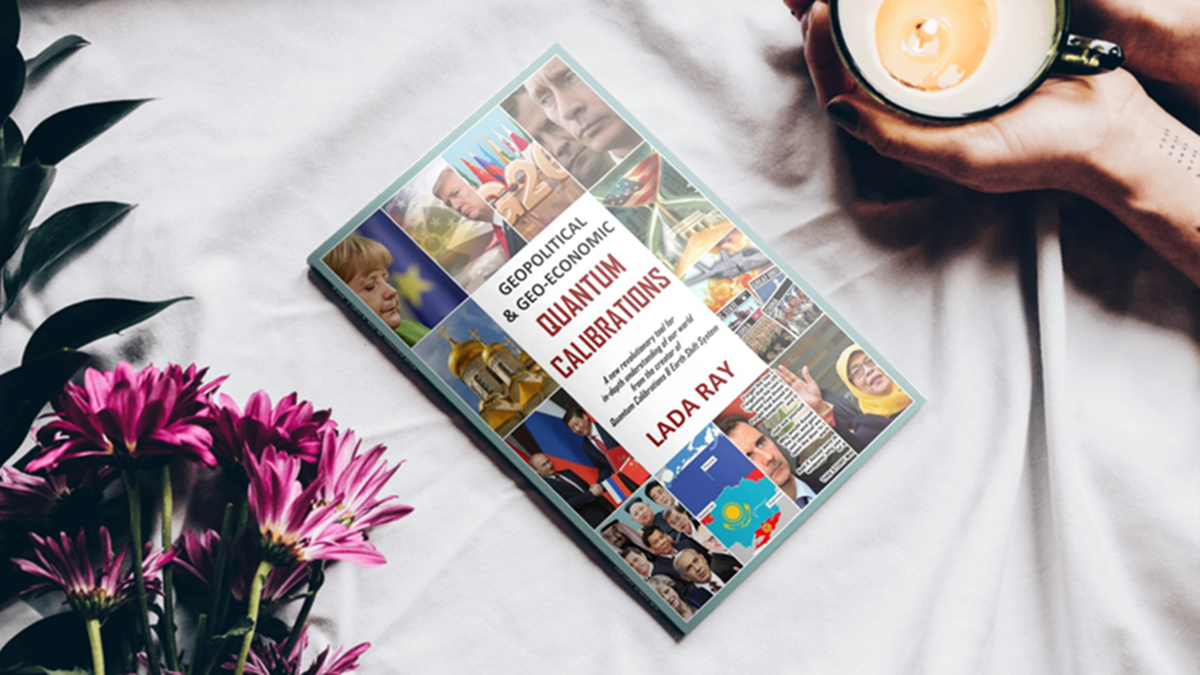

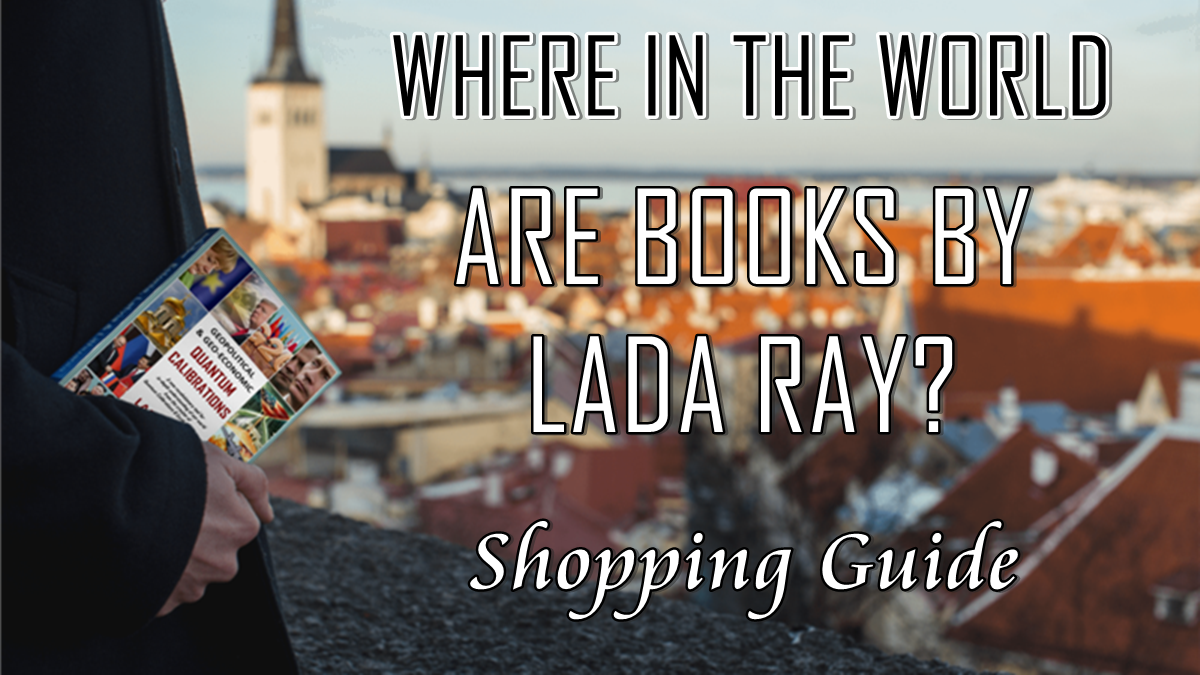





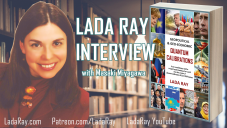


This tutorial about the origins and meanings of names is more telling, and far more informative, than any of the current “history” and its associated gripes and accusations that everyone has. Thank you, Lada.
If and when you have the chance, somehow setting this up graphically, perhaps in some sort of bullet point form, so that it is easy for the eye to see and the mind to grasp, can become a major part of your blog’s sections. Having repeating map pictures of where these name endings reside, and where they came from will be helpful. The mind thinks with pictures. Also, if it is possible to provide numerous pictures of people who hold the characteristic visage of people with the various names, that helps the mind make connections, too.
LikeLike
I love maps too. I think they add a lot of spacial clarity to our perception. I’ll see what I can do when I have a bit of time.
Thanks, my friend. 🙂
LikeLike
Love this information. Helps lots.
LikeLiked by 1 person
🙂
LikeLike
Lada Ray,
As usual fantastic read on name and origins. I happy that “sky” is of noble origin. I always thought my dad was noble.
Best, Tom Sky
LikeLike
Hugs 😉
LikeLike
Thank you for dispelling some of the misconceptions that, may I say, are quite deeply-rooted, even for a Russian.
LikeLike
Very welcome, my friend.
Hugs and be well.
LikeLike
Your comment about the name of Berlin made me think. I find linguistic history rather fascinating.
It is said that the original word for “bear” in Russian is lost. What is used today – medved’ – is a placeholder, used by people instead of the real name, fearing to call the creature if they used the real name. (Much like You-Know-Who is used instead of Voldemort in HP universe). Medved’ literally means “the one who knows where honey is”. (“Med” – meed, mjod – honey; and “ved” as in contemporary Rusian word “vedat'” – to know) Incidentally, the name of Russian Prime Minister – Medvedev – is derived from it.
Now, there is another bear-related word, in English – den. In Russian it is “berloga”. Berl-oga. Note the same root as in Berl-in. The -oga part may mean “stronghold” as in the words for “fence” – “ograda”. This leads me to believe that the original Russian word for bear was “berl” or something close to it.
LikeLike
I wish I could edit comments… Hiving thought a bit more, I should have split the word “berloga” at a slightly different place: ber-loga, as it makes more sense. “Ber-” is “bear” and “-loga” has the same root as the word “lozhit’sja” (‘g’ and ‘zh’ can palletize), which means “to lie down” and “logovo”, which is another word for “den”. So, “berloga” (bear den) becomes “a place where bear lies”.
LikeLike
Interesting, Nemo.
LikeLike
Glad you corrected yourself. Ancient Rus/mother tongue for bear was ‘ber’ – hence ‘ber-loga.’ This is one of the most ancient words. ‘Log’ is another mother tongue root and it is visible in many languages. ‘Log’ means anything to do with being horisontal or settled. Like ‘lodging’ in English or ‘logovo’ in Russian: cave, underground dwelling, hiding place. Russian ‘log’ means a trunk of wood – obviously a horisontal item, when layed down or set as part of the wall of a dwelling. English word ‘long’ also comes from this root. Russian ‘lozhitsia’ – ‘to lie down’ is obvious too.
Berlin: from ‘ber’ + ”log’ + ‘in.” Literally means ‘in the bear den.’
LikeLike
Very interesting. Russia is a really large civilization. When might the cossacks have separated from the Khazars? Before the Khazar Empire?
If you want to look into something speculative some time, there is evidence that a Jewish influence came to Japan a long time ago. In fact, the guy in charge of finding lost Jews/Jewish tribes for the Israeli government came to Japan and said the evidence was very strong for this. I would imagine that what is now Kyoto was the terminus of the Silk Road, and that Silk Road had a strong Turkish influence, and some part of that may have been Khazar. All speculative, of course, but the famous Gion Festival in Kyoto is held at the time of a Zion festival in the Jewish world, or so they say, and many of the pictures on these ancient artifacts have pictures of camels and even things that seem to be from the Middle East. Not much like that in Japan.
LikeLike
Very interesting about Jews in Japan. Thanks.
The separation occured around 8-12 century.
New stuff is coming out all the time. The new theory called the “new chronology” by the Russian scientists places most historical events at different times than usually understood. This is the work of 40 years by a whole team on the crossections of many sciences.
History was massively falsified mainly in the 17th century. I am hoping to do a documentary on the new chronology and distortions of history.
LikeLike
I found another of your statements quite telling: the fact that Bulgaria linguistically separated from Russia much later than what mainstream history leads us to believe. I can somewhat confirm it based on my experience of reading Bulgarian texts without knowing the language. I did such experiments with some other West-Slavic languages, and can grade them thus, from easiest to understand for a Russian-speaker to most difficult/illegible: Belorussian, Bulgarian, Serbian, Ukrainian, Slovak, Czech, Polish, Latvian.
While Belorussian is more like a dialect of Russian, than a different language, for Bulgarian you need to spend a little more effort to understand the real meaning of some of the words, yet they are still very close to the Russian counterparts and Bulgarian texts can be understood by a Russian for about 80%. Interestingly, Ukrainian is far more difficult to understand.
As for Ukrainian, my feeling is that it is very much based on Polish and was imposed on the population of West-Ukraine over the last couple of centuries, and artificial language, if you like, which drifts back towards Russian in the form of Surzhik.
Also, Latvian is a Slavic language (despite all the brainwashed hate against Russians and all things Slavic that Latvians are subjected to, much like West-Ukrainians are being subjected to it now), though it and Russian went different paths for so long ago, that Latvian is illegible for a Russian.
What is your take on it, Lada?
LikeLike
You are right, Ukrainian was distorted as words were imposed by the Polish and Austrian influences when parts of Ukraine belonged to them. In fact, there was no Ukrainian language: it was Maloross dialect, which drifted apart from the Velikoross dialect in time due to foreign influences. Velikoross language is what is today called Russian.
LikeLike
Regarding the rewrite of history. I’ve recently watched a brilliant documentary by the Russian satiric and history enthusiast Mihail Zadornov, called “Rjurik. The Lost Chronicles”
It covers the theory of who was the first Russian prince Rjurik and Varjags, debunks the Norman theory, imposed during the 1700s by the German scholars, and explores the Slavic roots in the present Northern Germany. The film takes into account a cross reference of such sciences as archaeology, linguistics, genetics, and shipbuilding.
Lada, maybe you’d be interested in writing an article about this film and the theory presented in it?
LikeLike
It’s a good movie and Zadornov is right. The only thing: he doesn’t go far enough. There is lots more on this subject, which many in the West can’t accept because it completely demolishes their version of history. Z tries to stay neutral. What he says I knew since I was about 5 (or maybe since birth, or before). I’ll have much more on that soon.
It’s good stuff. Z is now making another documentary about Prince Oleg.
LikeLike
Loved this. BTW, we Irish Gaelic speaker use sthe suffix “-ín” to denote paternity/maternity eg a boy named Pádraig who is the son of Seán will be “Pádraig Sheánín” (“Sean’s Patrick”) without the surname.
LikeLike